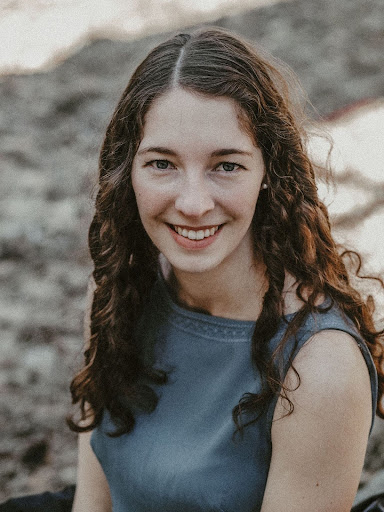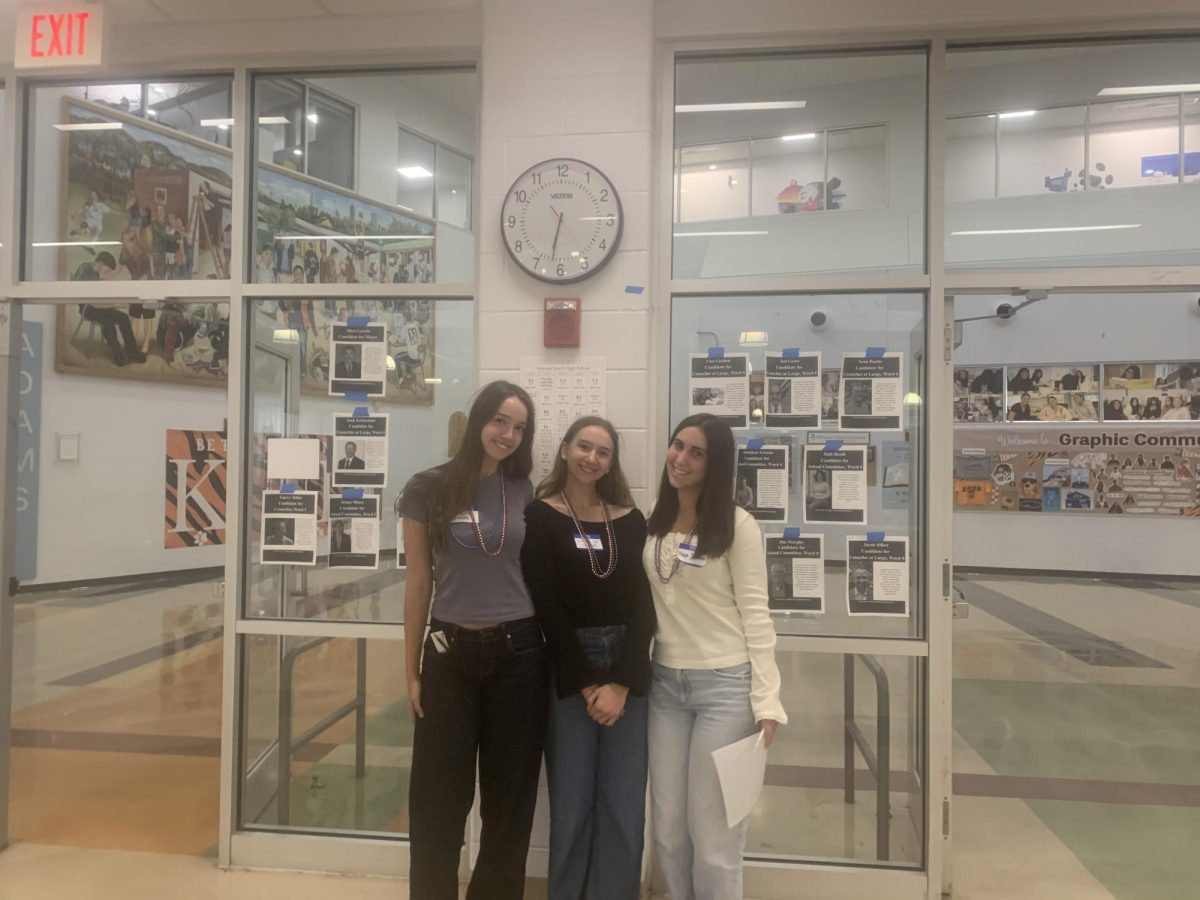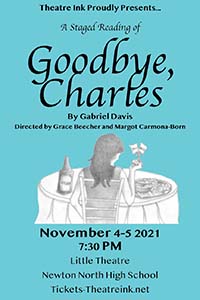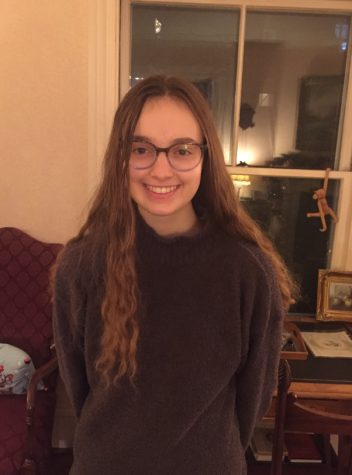Goodbye Charles set the stage as Theatre Ink’s first show of the year with themes of divorce, commitment, and comedy all tied into a tight staged reading. Directed by juniors Grace Beecher and Margot Carmona Born, the play ran Nov. 4-5 in the Little Theatre.
The cast had only three weeks to prepare. Because the play was a staged reading, the actors held scripts in their hands that they could consult during the show.
“The thing that a lot of people seem to think is that because you’re reading a script, it’s no problem at all, just read from the script,” said junior Olivia Schpeiser, who played Charles. “But you actually had to be familiar with the line because you couldn’t just be staring down at the paper for the whole show. You do have to know what you’re doing; the script is there more as a crutch.”
The play opens with the scene, “The Superficiality of Matrimony,” introducing a sobbing Jill and her friend Barb. Jill’s husband, Charles, has disappeared without a trace, leaving only one message sent in the mail: divorce papers.
However, the heavy tone quickly swings to the comedic side when Charles turns up at Jill’s home. He wants Jill to sign the papers, ending a marriage he believes they never should have entered. Jill, however, delivers a raging monologue in response, claiming that she has eaten the divorce papers and that they tasted good with ketchup. Failing to convince Jill to sign the papers, Charles leaves again.
The play follows Jill on a journey to bring Charles back, as she goes from person to person, seeking the truth about the man she was certain had loved her. The show explores the relationship issues of many different characters.
The unique part of the show is that deep themes were delivered humorously. Each person Jill meets on her path to Charles shares their own story with her. When the economy turns bad for a cheese shop owner and he is forced to rob cheese shops for a living, his wife leaves him. However, the woman comes to find that her next husband, who was employed as a fact-checker, believes he is a leprechaun.
Schpeiser said that the unusual pairing of serious topics with blatantly wacky characters drew in the cast.
“It’s literally about a divorce, and a guy might have gone missing because he may or may not have cheated on his wife, and then a scene later you have this guy having a three page monologue about how he thought he was a leprechaun for years, and I think that really stark blend of comedy and darker themes really stood out a lot,” said Schpeiser.
One important aspect of Goodbye Charles was its simplicity, which allowed for a character-driven show.
“The costumes were just very minimal and the set was very minimal, because we really wanted to focus on the characters and their relationships and what was going on in the plot,” said freshman Uma Katz, a cast member.
The simplicity, far from making the show less sophisticated, actually enhanced the acting because it was the entire focus of the show. Because of the plain set and brevity of the play, it ran without an intermission or set changes. To indicate changes in location or time, the actors would make a deliberate move, such as changing seats with one another or sliding a chair to a different position. The actors did not rely on elaborate costumes or sets, explaining the subtleties to the audience through pure acting skill.
According to Katz, the format of the play also enhanced the development of individual characters.
“A staged reading really helps you focus on the material itself, not just the memorization because memorization is very costly, it takes a really long time,” she said. “With a staged reading, it really allows you to go through some character development and really understand your character.”
Some actors had multiple roles, such as Katz, who enjoyed playing Andre, the cheese shop owner, and Kennedy, the fact checker-turned-leprechaun. “Both characters had similarities, so I could dabble into both characters and have similar reactions because they’re both comic relief,” she said. “I was really excited to play both those roles because I really like humor.”
Beyond their own characters, much of the cast took turns playing the narrator. The smooth transitions were incredible and deliberate. Rather than dimming the lights, an actor would tell the audience that time had passed and recount what had happened in between. Then, the actor would suddenly transition, sometimes mid-sentence, to acting in the show again. This technique also allowed the actors to play with time, recalling what had occurred in previous days and then returning to the present, without the audience becoming confused.
Katz said that she appreciates the chance to take on a show with more adult themes. “I don’t think I’ve seen kids do this kind of stuff,” said Katz. “This is definitely an adult play and it tackles a lot of adult issues, and it was really eye-opening to see that kids understand the same things adults struggle with.”
Katz added that the play has allowed her to expand her acting ability. “I’ve never done a play with this short amount of time, I’ve always done long productions, and so it was definitely different, something I’ve never experienced before, and I think I grew a lot during this experience as an actor.”
This was Schpeiser’s first show since the beginning of the pandemic. They said, “In May of last year I went to see Addams Family because a bunch of my friends were in it, and I saw it and I did not realize how much I missed this until I went back and saw a show, so I decided to take part in some more theatre.”
“I really liked this show. I really like how it’s written; I think it’s pretty funny. There are parts that I did not expect people to find funny but the audience laughed at them anyway,” said Schpeiser. “I also think that it’s a pretty complete story for how short it is; it’s only 50 pages or something like that, an hour long, and I think it just tells the story really well.”












































